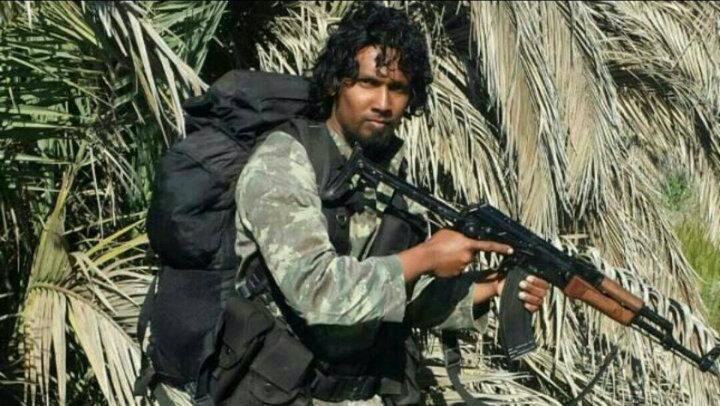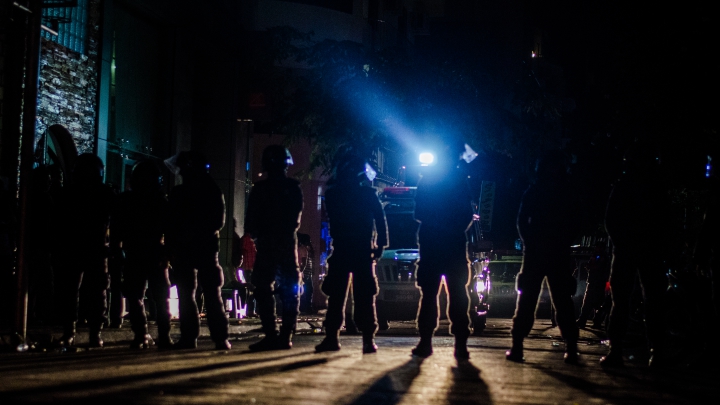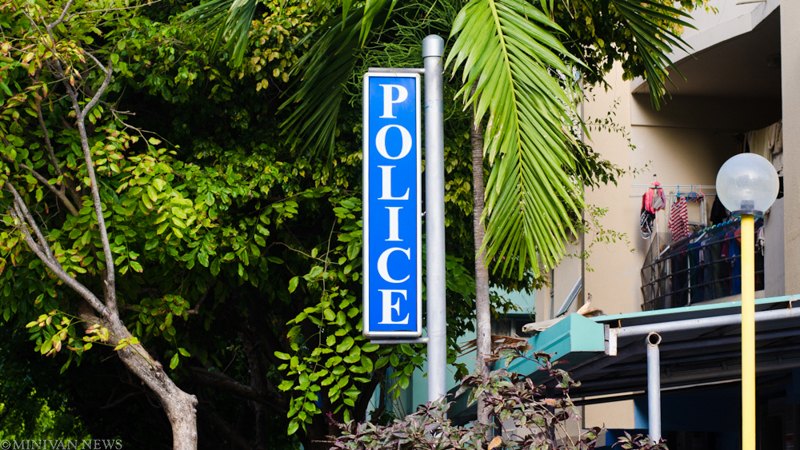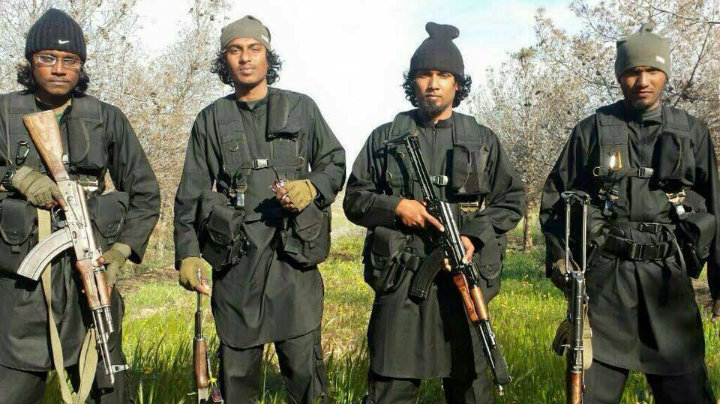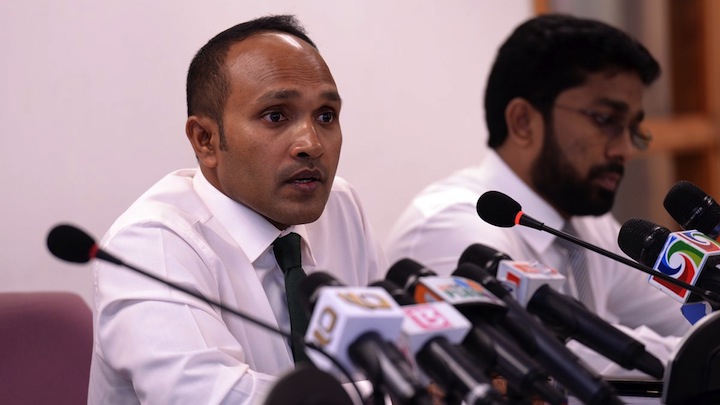President Abdulla Yameen has ordered an investigation into how a suspect in the murder of MP Afrasheem Ali was allowed to leave the Maldives in early January and travel to Syria.
“I have now ordered the police to investigate this. Azlif Rauf, who is said to have information on the murder, left the country while the case was ongoing,” Yameen said at a press conference at Muleeaage tonight.
“I want to raise the question as to why he was allowed to leave the country? Immigration officials and the defense minister who was in charge of immigration at the time must be accountable.”
Azlif is reported to have left the Maldives along with a suspect in the disappearance of Minivan News journalist Ahmed Rilwan in the first week of January. His family claims he was killed in battle in May, and have publicised pictures of him in military fatigues carrying guns.
The police had forwarded accomplice to murder charges against Azlif to the Prosecutor General’s Office, but charges were never filed due to insufficient evidence.
At the time of Azlif’s departure, the criminal court told Minivan News it had not issued any order to withhold his passport, as there were no pending charges.
Azlif left the Maldives in the same week that the defense ministry was temporarily handed over to tourism minister Ahmed Adeeb. Defence minister Mohamed Nazim was on leave at the time.
Soon after Nazim returned, the police raided his apartment and found a pistol and three bullets in a bedside drawer. He was dismissed from the cabinet and jailed in March on weapons smuggling charges.
President Yameen’s announcement comes after local media reported today that the police had brought back a Maldivian man from Malaysia last week, after his family reported that he was attempting to travel to Syria to join the civil war.
The police in January brought back four Maldivians from Malaysia on the same charges. The government has recently submitted to parliament an anti-terrorism bill that hands out a jail sentence of up to 20 years for Maldivians who leave the country with the intent of fighting in a foreign war.
Meanwhile, several opposition politicians and Yameen’s own home minister have accused the president of involvement in Afrasheem’s murder. Home minister Umar Naseer made the allegations after he lost the ruling party’s presidential primaries to Yameen in 2013. He retracted the allegations after assuming the cabinet portfolio.
Yameen in May vowed to file criminal charges against Adhaalath Party president Sheikh Imran Abdulla over statements linking him with the murder. Imran is currently in police custody facing terrorism charges over an anti-government protest.
Reiterating concern over “unfounded allegations” tonight, Yameen censured journalists for “biased reporting,” claiming the media had failed to seek comments from the president’s spokesperson over the murder allegations.
The main opposition Maldivian Democratic Party (MDP) is negotiating with the government for Nazim, Imran and former president Mohamed Nasheed’s release.
